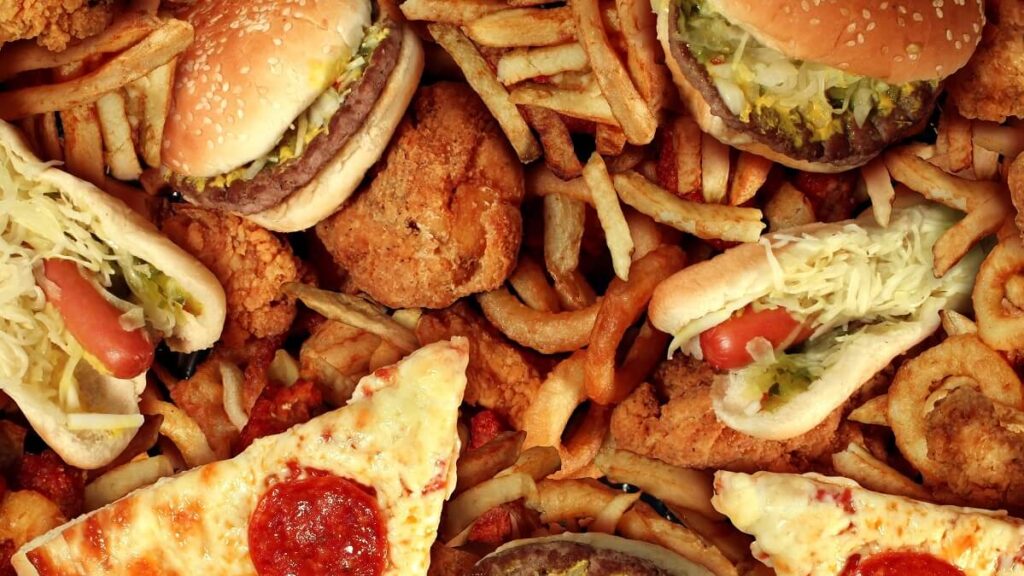Removing one food item from the Australian diet could save 2000 lives a year. And it’s something even laissez faire America has totally banned.
The George Institute for Global Health says trans fatty acids are costing Australia money and deaths from heart attacks.
It is estimated that a nationwide ban on industrial trans fatty acids in Australia’s food supply could prevent 2000 deaths and 10,000 heart attacks over the first 10 years and up to 42,000 deaths from heart disease over the lifetime of the adult population (the time from when the ban starts to when all individuals died or reached 100 years of age).
Heart disease puts 1100 Australians in hospital each day and causes one in five deaths, making it the nation’s leading cause of mortality.
Read: The surprising links between high-fat food and pain
Dr Jason Wu, program head of nutrition science at the George Institute, says the intake of trans fatty acids in Australia, mostly for people with less education and income, continues to exceed health guidelines. It is estimated that one in 10 people consume levels that exceed health guidelines.
“Despite the known health risks, our previous research shows progress on reducing trans fats in Australia’s packaged food supply has slowed to a halt,” Dr Wu said.
He said this inaction is “really quite appalling”.
“We’re really lagging behind as a country. The US, Canada, Brazil – they’ve all banned that ingredient outright. There are other countries that have said you can’t have more than say 2 per cent as a total in any given product.
“Others said we’re not going to ban it, but we are going to make it very transparent for consumers, saying you must label the amount of trans fat that’s contained in your food so people can make an informed choice.
“But in Australia, trans fat is not a required label. You won’t find it in the nutrition information panel.”
It has been argued that limiting trans fats, as many other countries do, would be too costly for the food industry. Most trans fat is formed by an industrial process that adds hydrogen to vegetable oil, which causes the oil to become solid at room temperature. This partially hydrogenated oil is less likely to spoil, so foods made with it have a longer shelf life. Some restaurants use partially hydrogenated vegetable oil in their deep fryers because it doesn’t have to be changed as often as other oils.
But the government would save money by banning trans fats.
Read: MSG copped a bad rep back in the day, was that fair?
“The cost of implementing this legislative measure was estimated to be $22 million during the first 10 years and $56 million over the population lifetime, most of which was down to government costs for monitoring implementation of the ban,” the George Institute said in a media release.
“However, the estimated heart disease-related healthcare cost savings, compared to no ban, reached $80 million over 10 years and $538 million over a lifetime.”
Dietitians Australia says there are only small amounts of trans fats in beef, lamb, and dairy foods. Processed foods are the villains.
“What we really need to watch out for are the trans fats in processed foods. The trans fats in deep fried foods, cakes and biscuits, and pies and pastries form when oils and fats are heated at a high temperature. So, to avoid trans fats, try to steer clear of processed foods and eat mainly whole, fresh foods.”
The Mayo Clinic says trans fat is the “worst type of fat you can eat”.
“Unlike other dietary fats, trans fat … raises your ‘bad’ cholesterol and also lowers your ‘good’ cholesterol.
“The more trans fat you eat, the greater your risk of heart and blood vessel disease.”
In 2015, the US Food and Drug Administration prohibited food manufacturers from adding the major source of artificial trans fat to foods and beverages.
The World Health Organization (WHO) is on a mission to eliminate trans fats globally by 2023.
“Manufacturers often use them as they have a longer shelf life and are cheaper than other fats. But healthier alternatives can be used that do not affect taste or cost of food,” it says.
According to the WHO, 58 countries so far have introduced laws that will protect 3.2 billion people from the harmful substance by the end of 2021.
“But more than 100 countries still need to take actions to remove these harmful substances from their food supplies.”
Dr Wu says such simple changes in diet can “rapidly improve your health”.
“There are trials that show if you give people healthy foods such as fruits and vegetables and decrease things like trans fat, within six to 12 weeks you can really drop people’s LDL (bad) cholesterol, you can lower their blood pressure.
Dr Wu says consumers should check the ingredient lists of products in supermarkets.
“If you see it says this product contains partially hydrogenated fat or partially hydrogenated vegetable oil, then definitely stay away from that product because that’s indicative of the presence of trans fats.”
Read: What is umani?
Smart eating tips to limit trans fats in your diet: (Dietitians Australia)
- avoid deep-fried fast foods and takeaways
- cut the visible fat off meat and remove the skin from chicken
- choose low-fat dairy foods
- limit cream and butter.
Foods that contain trans fats (Mayo Clinic)
- baked goods, such as cakes, cookies, and pies
- shortening
- microwave popcorn
- frozen pizza
- refrigerated dough, such as biscuits and rolls
- fried foods, including French fries, doughnuts, and fried chicken
- non-dairy coffee creamer.
Do you know which foods you eat contain trans fats? Would it be difficult for you to avoid trans fats? Let us know in the comments section below.

